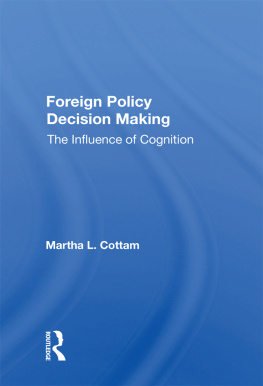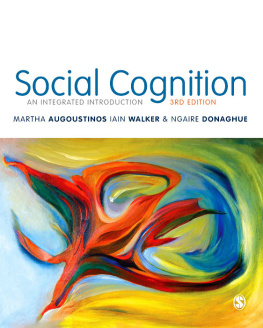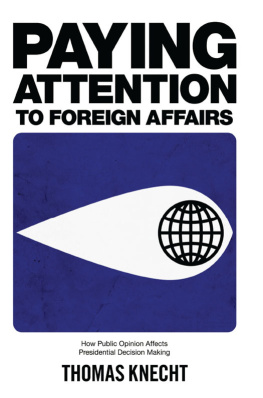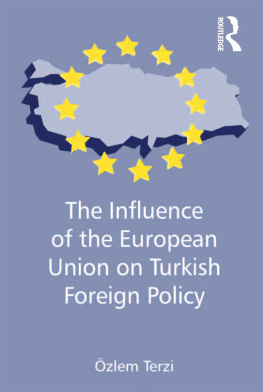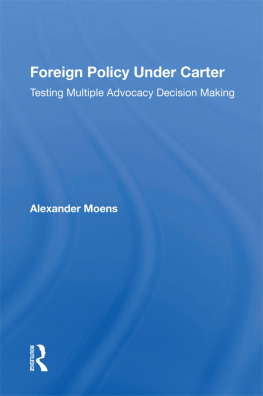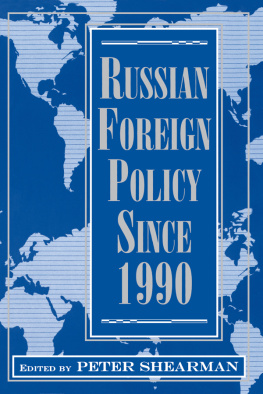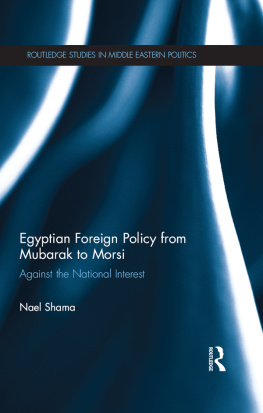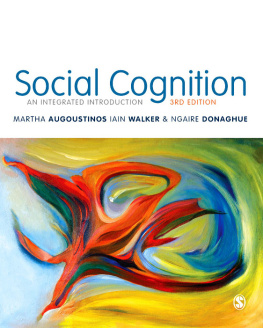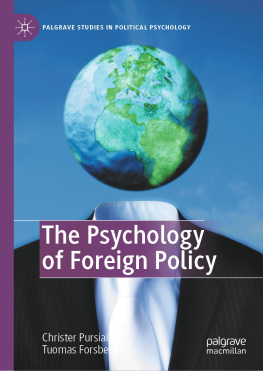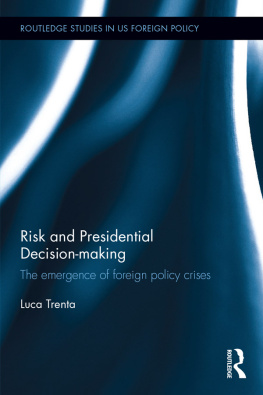Foreign Policy Decision Making
About the Book and Author
An analysis of decision making and negotiation in international relations, this book offers a political-psychological model of the images that compose policymakers' world views. Dr. Cottam explores the limits these images impose on diplomatic adaptation to changes in the foreign policies of other states. She evaluates established models of political decision making and cognitive psychology, offering an alternative framework in which it is argued that policymakers organize the world psychologically in terms of images of seven ideal-typical types of states. Her survey research shows that particular attributes and behavioral expectations are found in association with each image and lead to identifiable patterns of information selection and policy formation. Proposing that diplomatic activity can be traced to and predicted from the image ascribed to a target state, this book contributes to the growing body of literature attempting to understand and explain the psychological basis of successes and failures in international policy formation and negotiations.
Martha Cottam is assistant professor of American foreign policy at the University of Denver's Graduate School of International Studies.
Foreign Policy Decision Making
The Influence of Cognition
Martha L. Cottam
To Otto
First published 1986 by Westview Press, Inc.
Published 2018 by Routledge
52 Vanderbilt Avenue, New York, NY 10017
2 Park Square, Milton Park, Abingdon, Oxon OX14 4RN
Routledge is an imprint of the Taylor & Francis Group, an informa business
Copyright 1986 Taylor & Francis
All rights reserved. No part of this book may be reprinted or reproduced or utilised in any form or by any electronic, mechanical, or other means, now known or hereafter invented, including photocopying and recording, or in any information storage or retrieval system, without permission in writing from the publishers.
Notice:
Product or corporate names may be trademarks or registered trademarks, and are used only for identification and explanation without intent to infringe.
Library of Congress Cataloging-in-Publication Data
Cottam, Martha.
Foreign policy decision making.
(Westview special studies in international relations)
Includes index.
1. International relations--Research. I. Title.
II. Series.
JX1291.C65 1986 327'.072 86-13295
ISBN 13: 978-0-367-01165-9 (hbk)
This book has benefitted from the valuable insights and comments of many people as it has evolved through numerous stages. Robert Jervis and Edward Gonzalez provided valuable criticisms and suggestions. Their guidance in the earliest stages of the project was crucial to its completion. Otwin Marenin and Richard Cottam have contributed important comments on various versions of the manuscript and unceasing intellectual and moral support. The numerous discussions I have had with them, and also with Richard Herrmann, concerning the theoretical issues discussed in this book have been particularly important. Ben Menke offered helpful suggestions concerning the survey while Kay Wolsborn kindly helped me sort out the results. I owe a great debt to a real scientist, Patricia Cottam, who reminded me at a very important moment that social scientists can be quite cavalier in their research and that results must be faced honestly. Asma Barlas and Chih-yu Shih provided much-appreciated assistance in preparing the manuscript for publication. Finally, I am grateful to my students who have bravely challenged my ideas and in the process contributed enormously to the development of those ideas.
In 1978, dismayed by the souring of relations between the United States and Mexico, President Carter called for a complete re-evaluation of United States policies toward Mexico. In the process the National Security Council invited a Mexican official to express his personal view of the historical and contemporary interaction between the two countries. The official commented that:
[w]ith the passage of time, especially since the oil expropriation in 1938, Mexico has acquired a certain confidence in her capacity to act internationally. The consistent relative independence of her foreign policy since then is, in itself, a powerful factor that will have its bearing in future relations with the United States.
He argued that despite Mexico's unemployment and poverty, Mexico did have self-confidence, a new powerful negotiating tool (oil) and a determination to "increase the bonds of solidarity with other developing countries..." The official spoke at the height of the perceived promise in Mexico's oil discoveries in the mid-1970's. As Mexico changed it sought a more equal relationship with the United States. However, he expressed no hope that the United States would adjust its own policies to compliment Mexico's transformation:
I discount -- and don't give any credit to -- any sudden newly discovered or rediscovered good will, sympathy or moral considerations on the part of the United States that could change its basic attitude towards Mexico. Its past history with us, its present
Mexico is not the only country to complain bitterly about the failure of the United States to recognize and respond to change in its needs, demands and power. The United States has been accused of failing to understand the true nature of leftist movements in Nicaragua and El Salvador, and of interpreting them in outdated and irrelevant Cold War terms. The United States and other highly industrialized countries have been accused of failing to understand and respond to the needs and demands of the Third World for a New International Economic Order as well.
Why are policy makers slow to recognize and respond to political change, particularly non-revolutionary change? Why are there arguments among policy makers about the meaning of new issues and conflicts? Why do they disagree about which negotiating positions will best serve the interests of their own country? Do these puzzles reflect general patterns of information processing which also affect other aspects of international relations such as interpretations of diplomatic signals during a crisis, the conduct of intelligence analysis and the planning of coherent and consistent policies?
One method of addressing these questions is to study the perceptions of policy makers. An understanding of how decision makers view the political world may lead to explanations of the difficulty they have in recognizing, agreeing upon and responding to its transformations. As one scholar put it, "[p]erceptions of the world and of other actors may diverge from reality in patterns that we can detect and for reasons that we can understand."
This project is a study of the psychological processes involved in the recognition of non-revolutionary political change. The study has both a theoretical and empirical purpose. The theoretical goal is to contribute to efforts in political science to develop models for analyzing the effects of cognitive processes on political decision making. The empirical goal is to develop and test hypotheses concerning the effects of cognitive patterns on policy makers' ability to adapt to political change.
Several steps are involved in pursuing these goals. First, some of the major cognitive approaches in political science are reviewed. Second, a framework depicting policy makers' images of the international world is developed and supported with empirical evidence. The framework draws upon works in political science and psychology. Third, the effect of images on judgment is addressed with particular attention to the problems of adapting to change. Finally, hypotheses about the effects of images on adaptation to change are developed and tested in a case study of negotiations United States negotiations with Mexico in the area of energy trade from 1977 to 1979.


